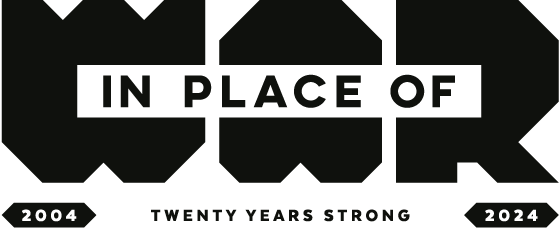Utopia For Social Justice / Tripoli, Lebanon
Residents of Tripoli, Lebanon can’t possibly have much more thrown at them. The country’s second largest city is one of the poorest in the Mediterranean region, a result of being ravaged by ongoing war and border conflicts.
Challenges include food and resource shortages as well as limited economic opportunities and the mental and emotional trauma that these bring. To top it off, there’s an ongoing refugee crisis as Syrians flee across the border into Lebanon, further deepening tense political and religious divisions.
In response, Chadi Nachabe partnered with like-minded practitioners to create Utopia for Social Justice in 2010. The Tripoli-based, non-profit, art-pacification organisation reduces these tensions through community service, advocacy, and the empowerment of vulnerable groups such as women and children. They manage a multitude of workshops, seminars, environmental projects and community interventions, and they’ve done so while relying solely on volunteer work and external fundraising.
Each of Utopia’s projects begin with a fundamental belief: social values both refine a society’s behaviour and define its culture. Any intervention they undertake starts with a deep investigation of the local community’s values, and we see this commitment for example in a social cohesion project they led in the Bab Al Tabbaneh neighbourhood.
To help alleviate tensions and foster collaborative problem-solving, Utopia organised two joint Syrian-Lebanese committees and provided them with three months of specialised training in conflict resolution and teamwork. The groups then worked together on the creation of two landmark symbols: a basketball court where Syrian and Lebanese could play together, and a carpentry shop where women from both communities could make and sell traditional handcrafts to create job opportunities and help prevent exploitation.
For another project, Utopia turned their attention to the dangers of manipulated news stories and their proliferation through social media. This is acutely dangerous for young adults, as they are the most avid users of social media and thus particularly sensitive to manipulation in heated conflict zones.
Utopia’s Media Education Project worked with young adults aged 18-25 and educated them about the dangers of relying on single news sources found on social media. Participants were trained to validate sources and evaluate image credibility in hopes that it would diminish violent responses to stories that often aren’t even true.
Leadership such as this illustrates what is possible when a passionate commitment to social justice is paired with patient investigation of true community needs. Some of the issues Utopia addresses may be unique to Lebanon, but their commitment and methodology is a model worth copying anywhere in the world.
Website
utopialebanon.org
Facebook
@UtopiaLebanon
Instagram
@utopialebanon
Twitter
@UtopiaLebanon
YouTube
@UtopiaTripoli
